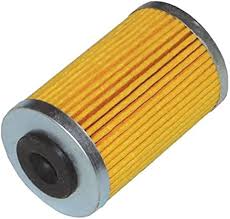Why Regular Oil Filter Changes Are Essential for Your Vehicle’s Health
2024-09-02
When it comes to maintaining your vehicle, one of the most crucial yet often overlooked components is the oil filter. This small but mighty part plays a vital role in keeping your engine running smoothly. In this blog post, we'll explore why regular oil filter changes are essential for your vehicle’s health and how neglecting this simple maintenance task can lead to costly repairs down the road.
1. The Role of the Oil Filter
The oil filter's primary function is to remove contaminants from the engine oil that can accumulate over time. These contaminants can include dirt, metal particles, and carbon deposits, which can cause significant wear and tear on engine components if not properly filtered out. By trapping these particles, the oil filter ensures that only clean oil circulates through the engine, reducing friction and wear on critical parts.
2. Preventing Engine Damage
One of the most important reasons to change your oil filter regularly is to prevent engine damage. Over time, as the oil filter traps more contaminants, it can become clogged. A clogged oil filter restricts the flow of oil to the engine, leading to inadequate lubrication. This can cause the engine to overheat and, in extreme cases, lead to engine failure. Regularly replacing the oil filter ensures that your engine receives a steady supply of clean oil, minimizing the risk of damage.
3. Enhancing Engine Performance
A clean oil filter contributes to better engine performance. When the oil filter is functioning properly, it helps maintain the right oil pressure and flow rate, which are critical for optimal engine operation. This means your engine can run more efficiently, delivering better fuel economy and smoother performance. On the other hand, a dirty or clogged oil filter can lead to reduced engine power and increased fuel consumption.
4. Prolonging Engine Life
Regular oil filter changes are essential for prolonging the life of your engine. Clean oil is less likely to cause friction and wear on engine components, which can significantly extend the lifespan of your engine. By investing in regular oil filter changes, you're protecting your engine from premature wear and tear, ultimately saving money on costly repairs and ensuring your vehicle remains reliable for years to come.
5. When to Change Your Oil Filter
The frequency of oil filter changes depends on several factors, including the type of vehicle you drive, the type of oil you use, and your driving habits. As a general rule of thumb, it’s recommended to change your oil filter every time you change your oil, which is typically every 3,000 to 5,000 miles for conventional oil or 7,500 to 10,000 miles for synthetic oil. However, it’s always best to consult your vehicle’s owner manual or speak with a professional mechanic to determine the optimal oil filter change interval for your specific vehicle.
6. Choosing the Right Oil Filter
Not all oil filters are created equal. When it comes time to replace your oil filter, it’s important to choose one that meets your vehicle’s specifications. High-quality oil filters are designed to trap more contaminants and last longer than cheaper alternatives. Investing in a premium oil filter can make a significant difference in your engine’s performance and longevity. Be sure to select a filter that’s compatible with your vehicle’s make and model to ensure proper fit and function.
Conclusion
Regular oil filter changes are a simple yet essential part of vehicle maintenance that can have a big impact on your engine’s health and performance. By keeping your oil filter clean and functioning properly, you can prevent engine damage, enhance performance, and prolong the life of your engine. Don’t overlook this critical maintenance task—invest in regular oil filter changes to keep your vehicle running smoothly and efficiently for years to come.



